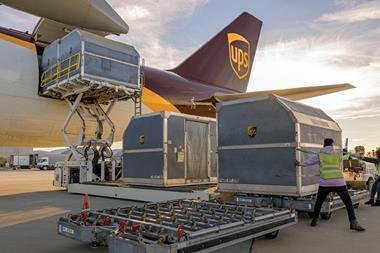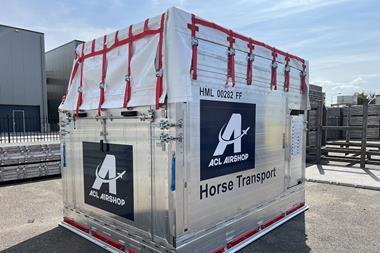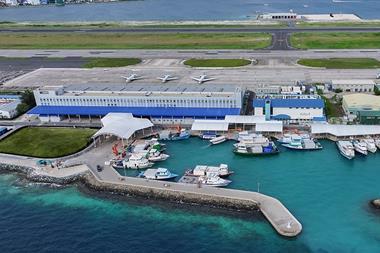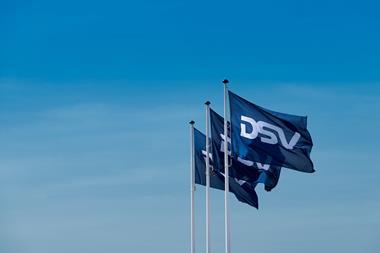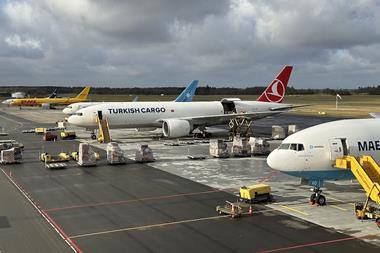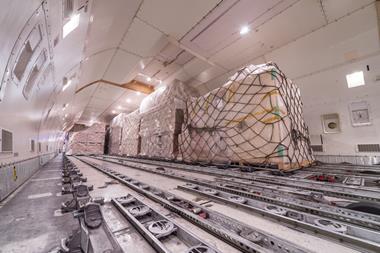Lyon Airport, operated by the VINCI Airports Group - the world's leading private airport operator with 65 airports, is the second largest airport for freight in France. Located in Auvergne Rhône-Alpes, France's leading industrial region and the second French region for foreign direct investment, Lyon Airport has ambitious development plans for its cargo activity. Growth on the pharmaceutical transport segment is a key objective, as the airport recently obtained IATA CEIV Pharma certification and in line with the strategy of VINCI Airports, Lyon Airport is committed to the sustainable development of its activities.
With an ideal location at the crossroad of the European motorway networks, Lyon Airport benefits from the economic dynamism of the Auvergne-Rhône Alpes region, the second in France for logistics and an industrial powerhouse representing 12% of French imports and exports.
The platform has developed a dedicated cargo area, offering efficient 24-hour operations without slot restrictions or congestion, whilst on-site customs and phytosanitary services ensure the swift processing of goods.
With a strong on-site community, including more than 144 freight forwarders, means operators benefit from an efficient end-to-end logistics chain.
Freight traffic at Lyon Airport grew in 2022, reaching 3,829 movements and 53,134 tonnes, representing a growth of 5% compared with 2021.
This growth was driven notably by the express operators, DHL, UPS and Fedex, who all have extensive operations on the platform, and by the full freighter operators, Qatar Airways Cargo and Air Algérie. Emirates, Turkish Airlines and Air Canada also contributed to the increase thanks to their significant belly capacity.

In addition to its traditional cargo facilities, Lyon Airport operates its own cool storage facilities in 500 sq m of warehouses, which were certified IATA CEIV Pharma (Center of Excellence for Independent Validators in Pharmaceutical Logistics) in February 2023.
Lyon Airport has a clear objective to become a major hub for pharmaceutical air transport so meeting the needs of its territory, which is home to many over 2,000 life sciences and health companies and is the French and a worldwide leader in vaccine research and production.
The CEIV certification guarantees the handling of pharmaceutical products at constant temperatures in the airport's refrigerated storage units so ensuring an unbroken cold chain and meeting the industry’s strict standards for the transport of these goods, and therefore allowing Lyon Airport to position itself as a key player on this segment.
The large cold storage site operated by Lyon Airport with: +2°C / +8°C; +15/25°C and -20°C cool storage and units dedicated to pharmaceutical products
Conscious of the environmental impact of its development objectives, and in accordance with the strategy of VINCI Airports, Lyon Airport also has an ambitious environmental policy, remaining committed to developing positive mobility.
The French airport has been reducing its CO2 emissions and will reach its objective of zero net carbon emissions by 2026, with the sequestration of 500 tonnes of residual CO2 via low-carbon labelled reforestation programmes.
Last December, the airport obtained ACA4+ certification (1), a global benchmark programme assessing the decarbonisation of airports and their contribution to the global "Zero Net Carbon Emission" trajectory for aviation.
This recognition underlines VINCI Airports' commitment to reducing the airport's direct emissions on the one hand, and on the other, to involving all the players in the airport ecosystem, including airlines and other partners of the platform, in particular through the following actions:
- Energy efficiency and sobriety measures: use of low-emission energy (purchase of biogas and green electricity, installation of a biomass plant for the cargo area's heating system by 2025);
- Cooperation with all platform users to reduce their footprint: eco-modulation of airport charges, electrical supply systems for aircraft on the ground (64% of aircraft stations already equipped with 400Hz), electrical recharging stations for passenger vehicles;
- Development of a network of forest and agricultural carbon sinks, with a Low Carbon Label, near the airport, to sequester the company's residual emissions after maximum reduction;
- Deployment of green hydrogen with a first hydrogen gas station for light vehicles from 2023. Production and distribution stations for gaseous hydrogen for ramp vehicles and heavy mobility, then liquid hydrogen for aircraft, will be built respectively by 2025 and 2030 in the framework of the partnership between VINCI Airports, Airbus and Air Liquide;
- By 2024, a 15-hectare solar power plant will be in operation on the airport's car parks: the electricity produced will be fed back into the grid for the neighbouring municipalities.
1: Programme managed by the ACI (Airports Council International). The performance of airports is assessed on a scale of 1 to 4+.










